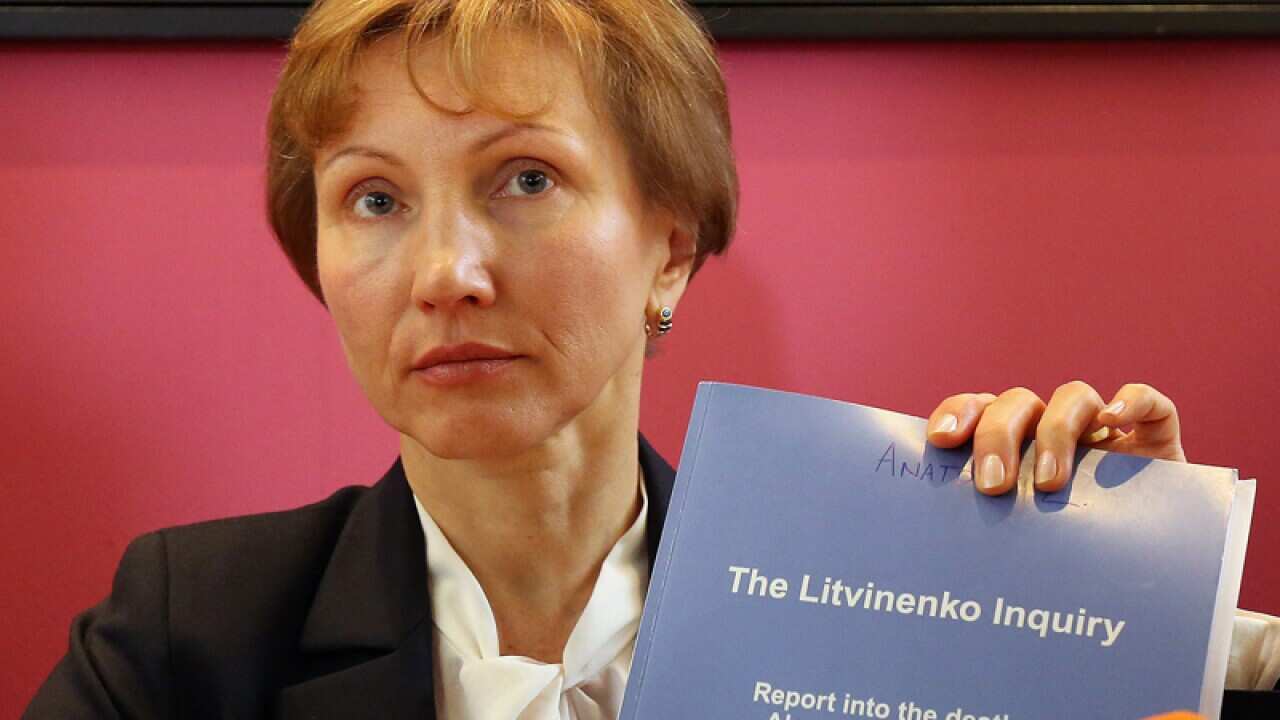President Vladimir Putin probably approved a 2006 Russian intelligence operation to murder ex-KGB agent Alexander Litvinenko with radioactive polonium-210 in London, a British inquiry has concluded, prompting a row with Moscow.
Russia, which had declined to cooperate in the inquiry, described Britain's handling of the case as opaque and biased. Britain accused the Kremlin of uncivilised behaviour but did not immediately signal it would take any stronger action.
Litvinenko, 43, an outspoken critic of Putin who fled Russia for Britain six years to the day before he was poisoned, died after drinking green tea laced with the rare and very potent radioactive isotope at London's Millennium Hotel.
An inquiry led by senior British judge Robert Owen found that former KGB bodyguard Andrei Lugovoy and another Russian, Dmitry Kovtun, carried out the killing as part of an operation probably directed by Russia's Federal Security Service (FSB), the main heir to the Soviet-era KGB.
"The FSB operation to kill Mr Litvinenko was probably approved by Mr Patrushev, then head of the FSB, and also by President Putin," Owen said.
The death of Litvinenko marked a post-Cold War low point in Anglo-Russian relations, and ties have never recovered, marred further by Russia's annexation of Crimea and support for Syrian President Bashar al-Assad.
"The conclusion that the Russian state was probably involved in the murder of Mr Litvinenko is deeply disturbing," interior minister Theresa May told parliament on Thursday.
"This was a blatant and unacceptable breach of the most fundamental tenets of international law and of civilised behaviour."
From his deathbed, Litvinenko told detectives he believed Putin - a former KGB spy who went on to head the FSB before winning the presidency - had directly ordered his killing.
The Kremlin has always denied any involvement but the claim that Putin directly ordered a killing of an opponent with a radioactive isotope in a major Western capital provoked immediate censure from Moscow.
Russia's Foreign Ministry said what it called Britain's politicised, biased and opaque handling of the Litvinenko case had clouded relations.
The judge said he was sure Lugovoy and Kovtun had placed the polonium 210 in a teapot at the Millennium Hotel's Pine Bar on November 1, 2006 when they met Litvinenko for little more than 30 minutes. Litvinenko said he had only drunk three or four mouthfuls of the cold green tea made with lemon and honey.
High polonium contamination was found in the teapot and the hotel bar.
The British government summoned Russia's ambassador Alexander Yakovenko, demanding the Kremlin provide answers and extradite the two main suspects.
"It is absolutely unacceptable that the report concludes that the Russian state was in any way involved in the death of Mr Litvinenko on British soil," Yakovenko said.
Both Lugovoy and Kovtun, who declined to participate in the six-month British inquiry, have previously denied involvement and Russia has refused to extradite them. Lugovoy, now a Russian lawmaker, was quoted by the Interfax news agency as saying the accusation was absurd.
Owen cited several reasons why the Russian state would have wanted to kill Litvinenko, who was granted British citizenship a month before his death on November 23, 2006.
The ex-spy was regarded as having betrayed the FSB by accusing it of carrying out 1999 apartment block bombings that killed more than 200 people in Russia and which the Kremlin, launching an offensive to restore control over the southern region of Chechnya, blamed on Chechens.
The FSB also had information Litvinenko had started working for Britain's foreign intelligence agency, MI6.
Litvinenko was close to leading Russian dissidents and opponents of Putin and his administration, whom he had accused of collusion with organised crime, and had made highly personal allegations about the Kremlin chief.
Litvinenko's widow, Marina, whose persistence led to the inquiry being held, called for Russian spies to be kicked out of Britain and for sanctions against Russia.

